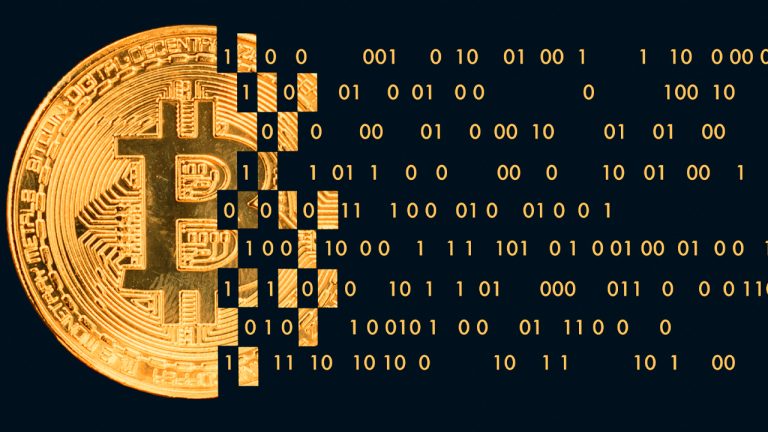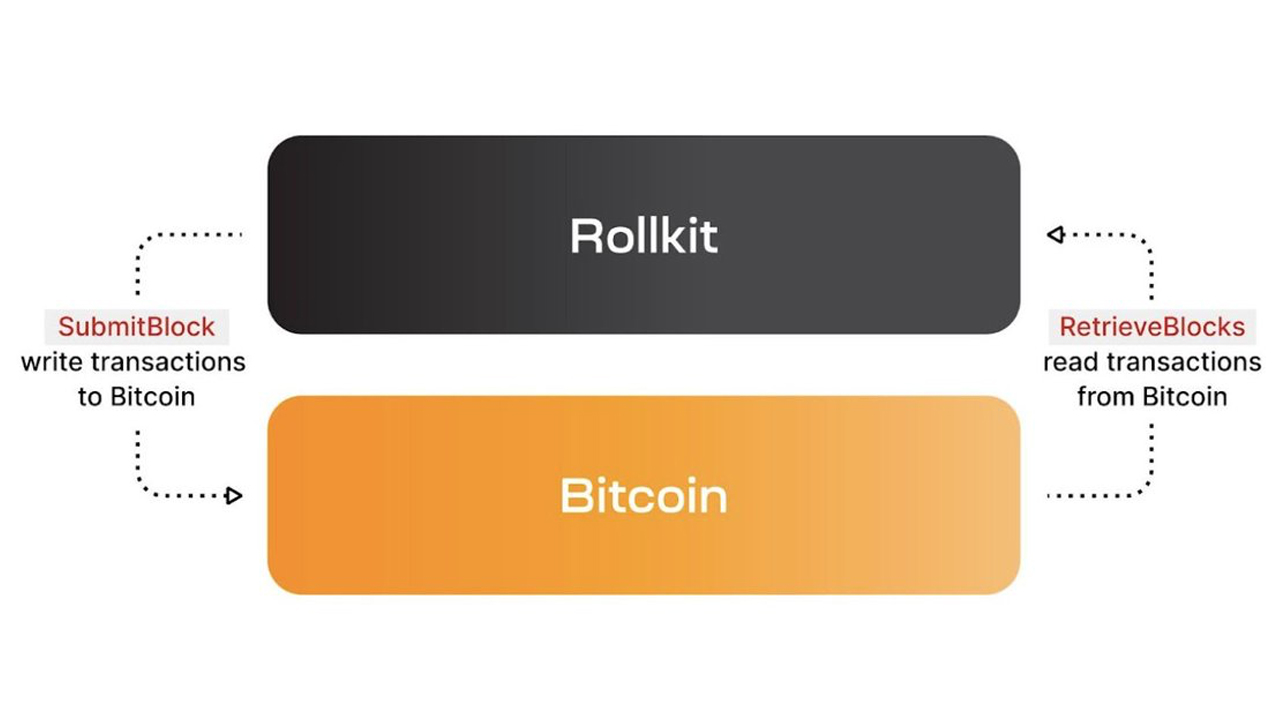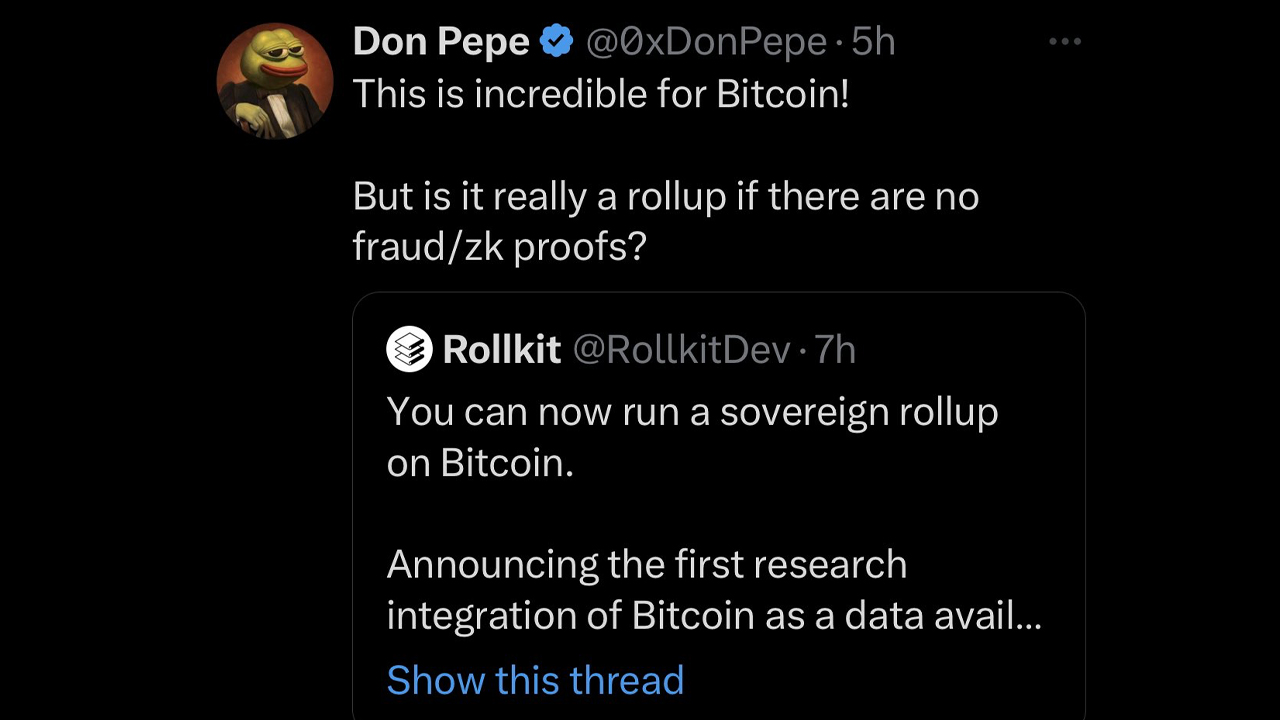
The Rollkit development team declared that Bitcoin can be used to enable sovereign rollups to store and retrieve data. The team confirmed that the software can run on the Ethereum Virtual Machine (EVM). Nevertheless, some Ethereum proponents argued against the use of the term “rollup” in this context.
Rollkit’s Modular System For Rollups & Its Potential Impact on the Blockchain Space
On March 5, 2023, developers announced that it is now possible for sovereign rollups to store or retrieve data using the Bitcoin blockchain. Rollkit said that this opens up more options for rollups and could lead to a better block fee market. To do this, the team used Taproot Transactions to read and/or write data on Bitcoin and created the “bitcoin-da” package to provide the required interface. They also added the “SubmitBlock” and “RetrieveBlocks” functions that interact with Bitcoin.

“Rollkit is a modular framework for rollups that provides interfaces for plugging in different components, like data availability layers,” stated the Rollkit development team. “The newest addition is an early research implementation of a module that allows a Rollkit rollup to use Bitcoin for data availability.” Programmers can also find the code on Twitter. The team stated that they followed an established design procedure for this project. “At its core, all that was needed was two functions: one to submit rollup blocks and another to retrieve them,” the Rollkit developers said.
The Controversy Surrounding Rollkit’s Incorporation of Bitcoin for Sovereign Rollups
Following Rollkit’s announcement, there was criticism from many Ethereum proponents. Ryan Berckmans stated: “A ‘sovereign rollup on Bitcoin’ is actually an alt L1 that stores its block data on Bitcoin. It’s not a real rollup or a real L2. [In my opinion], the best way for us to fight back against these lies is to build an Ethereum zk L2 that puts its data on Bitcoin.”
Another individual insisted, “Just because you have data availability doesn’t make it a rollup.” The founder of Interlay, Alexei Zamyatin, also weighed in. “Pls ser, read this paper,” he wrote. “You inherit *nothing* of Bitcoin’s security. Data availability – OK, but honestly, that’s been used since 2012. The entire post describes ‘I write some data to Bitcoin’ with fancy buzzwords,” Zamyatin added.

The Rollkit Developers recently released a demonstration video on YouTube highlighting the technology in action. Additionally, the team wrote a comprehensive blog post that explains how it works. “As we move towards a future where sovereign communities will form around different applications, expecting them to bear the high cost and overhead of deploying a layer 1 blockchain to be sovereign is simply not achievable,” The Rollkit blog post concludes. “Sovereign rollups can fix this by allowing for the deployment of a sovereign chain that inherits the data availability and consensus of another layer 1 network like Bitcoin.”
What are your thoughts on the use of Bitcoin for sovereign rollups? Do you trust its potential for a better block-space fee market or do you side with the critics arguing it is not a true rollup? Feel free to share your opinion in the comment section below.
Image Credits: Shutterstock, Pixabay, Wiki Commons
Disclaimer: This article is for informational purposes only. It does not constitute as an offer or solicitation to purchase or sell any product, service, or company. Bitcoin.com is not a provider of investment, tax, legal or accounting advice. Neither the author nor the company is responsible for any losses or damages that may be caused by or in relation to the use of this content, goods, and services.